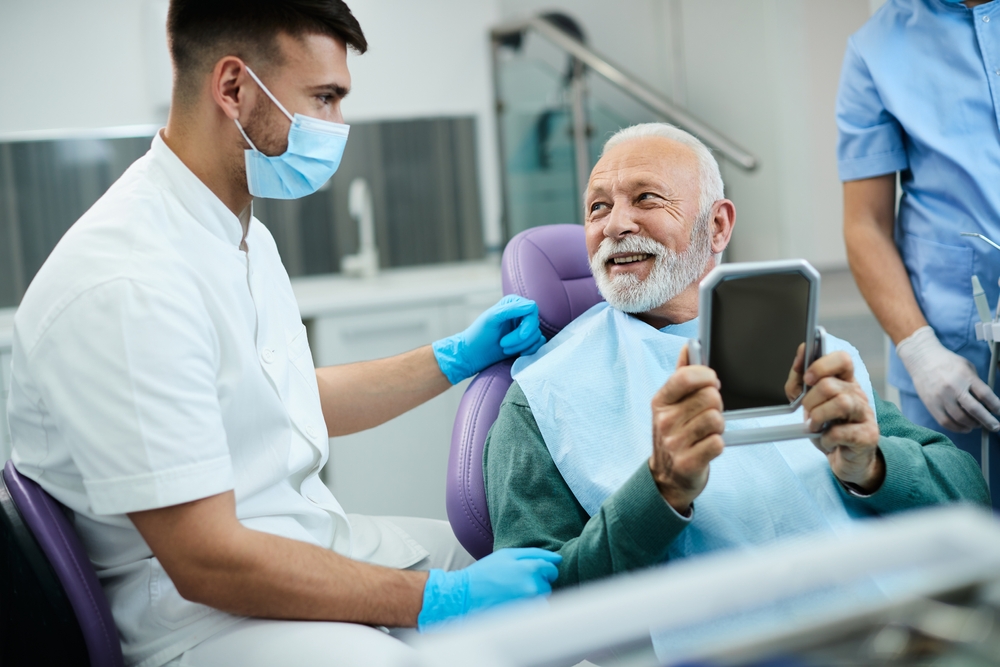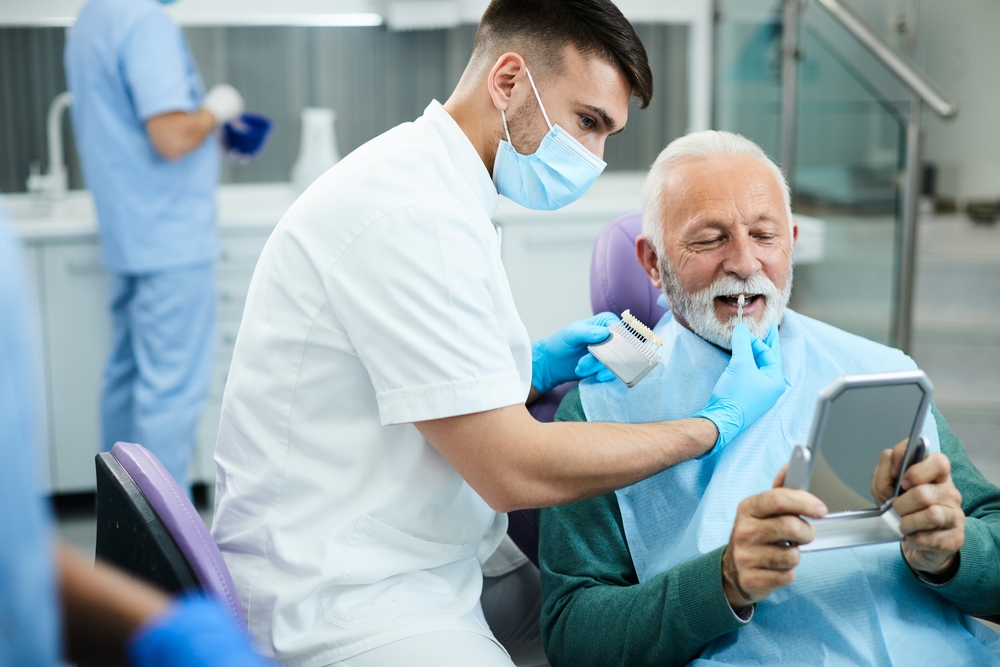Oral Hygiene for Elderly with No Teeth
Category:

Get up in the morning, brush your teeth. Eat a meal, brush your teeth. Have a little snack, especially if it’s sticky, brush your teeth. You’re in your jammies making that last trip to the bathroom, and before hitting the sack, you brush your teeth.
Oral hygiene is something we don’t even think about unless we get a toothache. It’s as much a part of our daily routine as washing our face and brushing our hair.
But what if we have no teeth? Is oral hygiene for elderly still necessary and if so, how do we maintain a healthy mouth?
Whether you have dentures or not, proper mouth care is essential to good health.
Let’s talk about the reasons oral hygiene is so important if you wear dentures and the steps to take before inserting your dentures.
- Use a soft brush to gently brush gums, the roof of your mouth and your tongue. Try using clean gauze or a washcloth if you don’t want to use a toothbrush.
- Use the cloth to massage gums and to remove any food or residue in your mouth.
- Swish mouthwash in your mouth after brushing to remove any remaining residue and bacteria.
- Brush and rinse your dentures.
- Always rinse your dentures after meals.
- Make sure they are wet when you put them in.
- Always remove your dentures at night.
- Soak your dentures in water or a denture cleaning solution at night.
- Never clean your dentures in boiling water. It can cause them to warp.
Oral hygiene for elderly with no teeth is still important, even if you don’t wear dentures. Proper care of your mouth and gums will prevent discomfort, reduce the likelihood of infections, and prevent bad breath.
If you do not wear dentures, here are some tips for keeping your mouth and gums healthy.
- Gently brush the tongue to remove bacteria that may develop there.
- Gums should be brushed at least two times a day. The gums are softer than teeth, so use a soft touch when brushing so you don’t injure delicate tissue.
- Use an anti-bacterial mouthwash daily. Try to opt for alcohol-free and sugar-free solutions. Since gingivitis is a disease of the gums, dental plaque can occur if you do not have teeth.
- Drink plenty of water to keep the mouth hydrated.
- Use a water-based moisturizer on your lips to keep them moist and keep them from cracking.
Download Our Bath Safety Guide
If an elderly person does not have teeth, other health problems can occur. If a person can’t chew properly, they may stop eating the foods that promote good health.
Poor fitting dentures or gums that have changed shape and contracted over the years make it difficult to chew foods such as meat, fresh fruits and vegetables, and anything crunchy.
So, as you can see, oral hygiene practices don’t end if you have a full-mouth tooth extraction.
In addition to making sure good oral hygiene is maintained, it is important to continue to see your dentist annually. The dentist can check for infections, poor fitting dentures, or
Subscribe
Date: 2023-06-13
Category:


